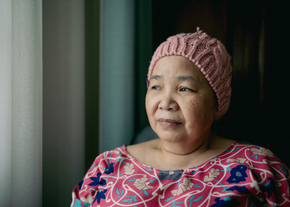
Suicide Prevention, Emotional and Mental Health Support



Supporting mental well-being starts with awareness and early care. When we reach out for help or take small steps during difficult times, we create space for healing, growth, and lasting positive impact. With prevention and timely support, well-being—and real hope—are within reach.
If you or someone you know is in immediate crisis, call or text 988 for the Idaho Crisis & Suicide Hotline (available 24/7). You may also call 911 or go to the nearest Emergency Department for evaluation.

Development of resilience and frustration tolerance, as well as good coping and problem-solving skills. Religious beliefs may also provide strength and inspiration.

Easy access to places with other people, such as a library or coffee shop. This should be balanced with limited access to means for self-harm, such as drugs, guns, and medication.

Meaningful relationships with people who can offer emotional or material support, or provide distraction. For youth, ensuring a connection with a trusted adult.

A focus on hope, responsibilities to others (such as family and/or pets), and knowing reasons for living (such as contributions, duties, and beliefs about death/dying).

Previous suicide attempts, aborted suicide attempts or self-injurious behavior, a family history of suicide or difficult childhood events.

Stressful life events, triggering events leading to humiliation, shame or despair, financial struggles, deteriorating health, impulsivity, and hopelessness.

Loss of a relationship, family turmoil, social isolation, lack of acceptance for sexual orientation or gender identity, membership in a historically disadvantaged group.

Mental health conditions (anxiety, bipolar, depression, schizophrenia, etc.), substance use disorders, insomnia, a chronic health condition and/or chronic pain.

Like many illnesses, prevention and early intervention can reduce the impact of mental health conditions. Symptoms of mental illness can often be painful and bewildering. But there is hope. And there is help. These resources can be a good place to start.

Anyone can learn how to help someone who may be considering suicide. Free training offered by The Speedy Foundation covers how to recognize the warning signs of suicide, offer hope, and get help.
Crisis support for anyone 24/7.
Call or text: 988
Online: idahocrisis.org
Crisis support for veterans and their loved ones 24/7.
Call: 988 (press 1)
Text: 838255
Online chat: veteranscrisisline.net
Information and support for LGBTQ young people 24/7.
Call: 1-866-488-7386
Text: START to 678678
Online chat: thetrevorproject.org
211 is a free referral service that connects you to community resource experts.
Call: 211
Text: 898211
Community Crisis Information
List of statewide crisis centers.